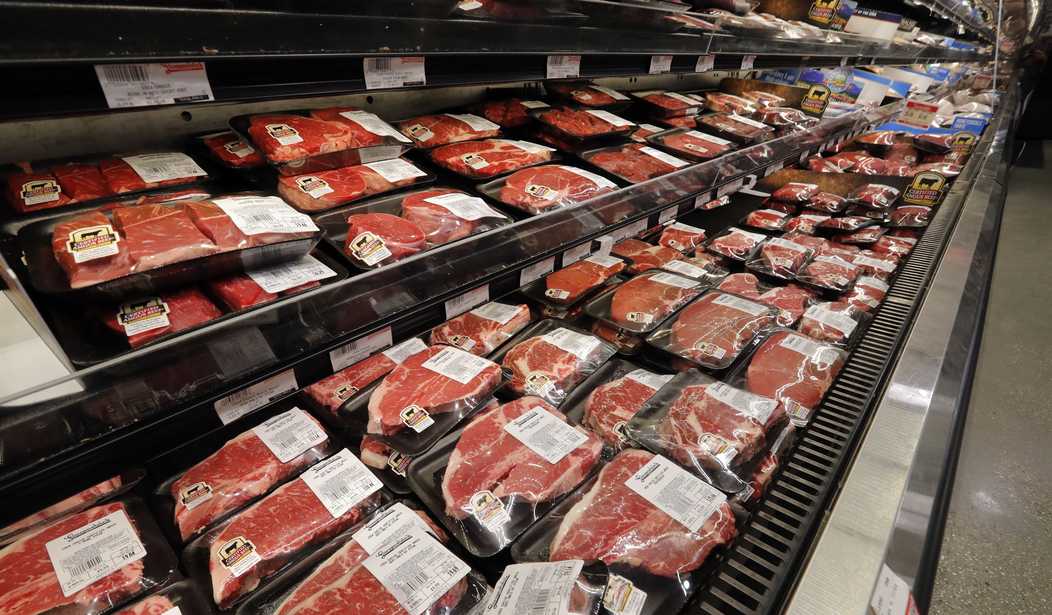Joe Biden has promised that the United States will be the first nation in the world to reach net-zero agricultural emissions. That pledge has run smack into the reality that any attempt to reduce America’s meat intake will not only badly damage the economy but also raise the hackles of citizens who would resent any interference by the government into trying to control their diet.
We’re told that agriculture accounts for 10 percent of all greenhouse gas emissions in the U.S. And livestock production is the largest source of methane emissions, according to the EPA. That means cutting meat production and consumption is critical to reaching Biden’s climate goals.
Realizing the political pitfalls of cutting production and reducing consumption of red meat. Biden’s first attempt to show farmers and ranchers to a more “climate-friendly” direction only affects emissions on the margins.
The Agriculture Department’s newly published “climate-smart agriculture and forestry” outline says almost nothing about how Biden aims to curb methane emissions from livestock operations. But environmentalists argue that any effort to shrink the farm industry’s climate footprint is half-baked if it relies on voluntary efforts and doesn’t address America’s system of meat production.
“USDA is setting itself up to fail on its climate and environmental justice goals,” says Chloe Waterman, senior program manager at Friends of the Earth U.S., a nonprofit environmental advocacy group.
And thank God for that. In truth, the draconian cuts in methane necessary to reach Biden’s goals would destroy the meat industry, and force Americans to eat “meat substitutes” like the mealy, foul-tasting plant-based “meat analogues” you can get in the grocery store and at fast-food restaurants. Or bugs.
But policy will soon be in the hands of people like this.
“There’s simply too much meat and dairy being produced right now for any of those small tweaks to get the emissions reductions that we need,” says Stephanie Feldstein, population and sustainability director at the Center for Biological Diversity. “There are so many policies, from dietary guidelines to what school meals are reimbursed, to agricultural loans and government purchases, that are currently promoting overproduction of meat — and all of that needs to change.”
“Overproduction of meat” means meat that’s reasonably priced and available everywhere. So much for that, if Ms. Feldstein gets her way.
One way the FDA may attack meat producers is through the Clean Air Act.
That’s why environmental advocates are pressing for more immediate action. More than two dozen groups petitioned the EPA last month to restrict greenhouse gases from large dairy and hog farms under the Clean Air Act, specifically operations with at least 500 cows or 1,000 hogs.
Many such large operations are propped up by USDA’s guaranteed loans and other farm support programs, Ben Lillliston, director of rural strategies and climate change at the left-leaning Institute for Agriculture and Trade Policy, noted recently.
Greens have been pushing the “meat substitute” for 20 years and it has yet to catch on. That should tell you about America’s love of beef and why, unless the government forces cuts in production, veggie burgers will never replace hamburgers.










Join the conversation as a VIP Member